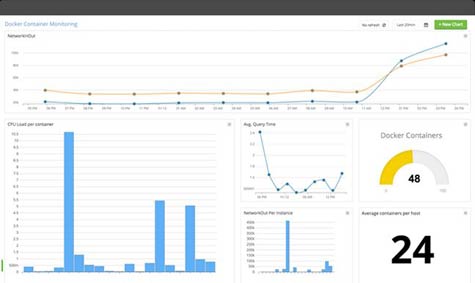Now that Docker containers are all the rage among developers, the real work in terms of managing those containers needs to begin. As a first step toward providing the foundational layer needed to accomplish that task, Logentries this week announced it has added Docker container support to a namesake log management service delivered via the cloud.
Developed in conjunction with nearForm, a provider of application development and training services for Node.js, Logentries chief scientist Trevor Parsons says usage of Docker containers in production environments has increased considerably in recent months.
The challenge that Docker containers represent is that once an organization adopts them, there tends to not only be a lot more of them than virtual machines, but they come and go a lot more frequently. Because it’s simple for developers to spin up a Docker container, the rate at which instances of those containers, especially in application development and testing environments, are spun up and down is much faster than the average IT operations team is used to seeing.
Parsons says by adding support for the Docker application programming interface (API), Logentries provides a central location for capturing both log data relating to Docker containers as well as the rest of the IT environment. Instead of having to configure that log management system themselves, Logentries provides a cloud service through which organizations can interrogate that data themselves, or expose it via a Logentries API to any number of other applications. The critical thing, says Parsons, is to make sure that Docker container data is being collected from both the containers themselves and the hosts they run on.
Naturally, Parsons says there is still a lot debate about whether Docker containers will run on bare-metal servers, virtual machines or a platform-as-a-service (PaaS) environment in the cloud or on premise. In all probability, most IT organizations will wind up deploying Docker containers in two or more of those scenarios.
Regardless of the deployment scenario, however, most IT operations teams are not equipped to manage hundreds, possibly even thousands, of Docker containers that can spin up at a moment’s notice. Like it or not, however, even though Docker containers may not be the most mature of enterprise IT technologies just yet, the amount of time those IT operations have to get prepared to manage those Docker containers is dwindling much faster than anybody really wants to admit.




